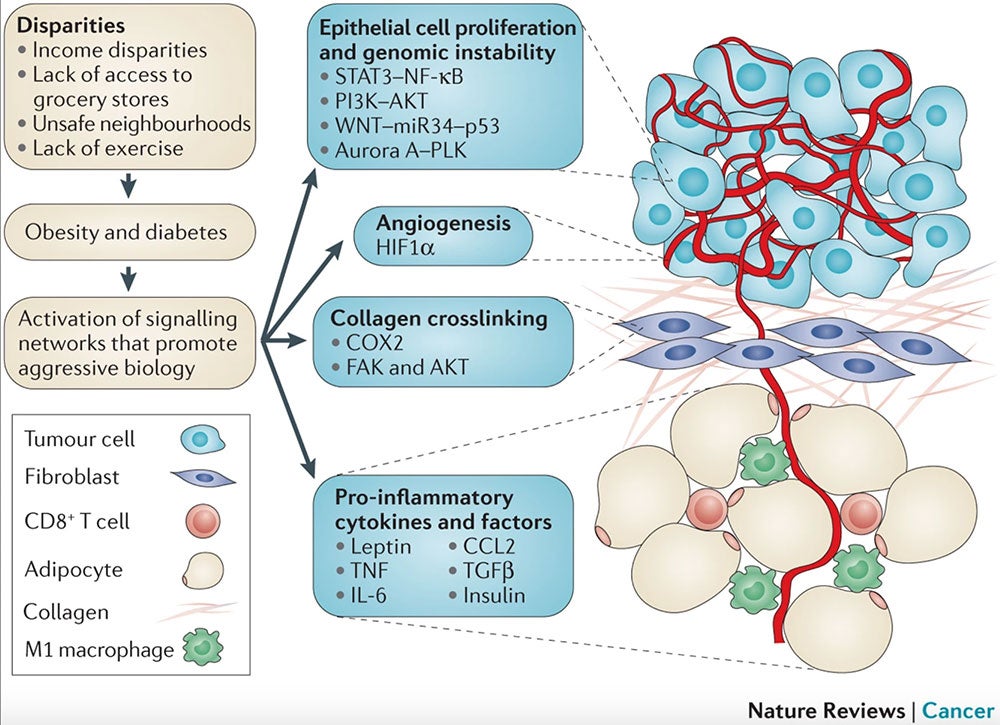
Cancer Health Disparities
The Problem
Understanding cancer health disparities is the first step in working toward a future with equitable cancer health care. Individuals may belong to one, or numerous communities that are disproportionately impacted by cancer. Navigating one's journey with cancer is difficult on its own, this can be an even more frustrating and isolating experience without the necessary resources and information. Our goal is to make information more accessible to underserved communities. For a more holistic explanation of cancer disparities and the contributing factors, please explore NCI's website.
Statistics
In addition to their explanation of cancer health disparities, NCI also provides a breakdown of different statistics on cancer disparities.
Social Determinants of Health
Social determinants are defined as the conditions in which people are born, live, learn, work, play, worship, and age. These determinants are shaped by the distribution of money, power, and resources across society, and they affect health in terms of overall personal function, quality of life, risks, and outcomes.
Effective Quote from the journal: “We must acknowledge that health inequities are the result of social, economic, and political injustice”
Impact of Genetic Ancestry and Biology

Other Health Disparities
For more information on other non-cancer health disparity work at UCR please visit the UCR Center for Health Disparity Research

